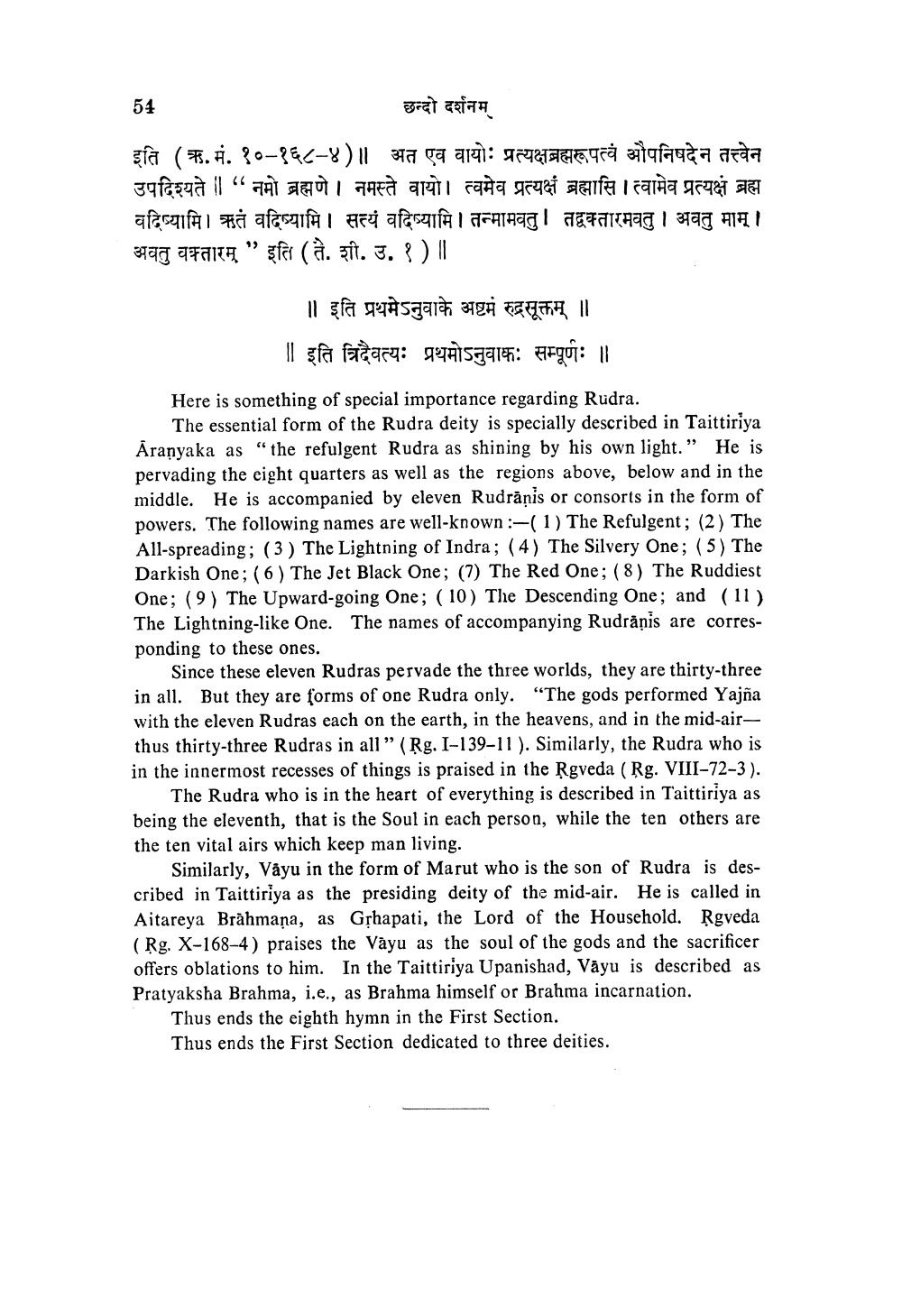________________
54
छन्दो दर्शनम
इति (ऋ. मं. १०-१६८-४)॥ अत एव वायोः प्रत्यक्षब्रह्मरूपत्वं औपनिषदेन तत्त्वेन उपदिश्यते || " नमो ब्रह्मणे । नमस्ते वायो। त्वमेव प्रत्यक्षं ब्रह्मासि । त्वामेव प्रत्यक्षं ब्रह्म वदिष्यामि। ऋतं वदिष्यामि । सत्यं वदिष्यामि । तन्मामवतु | तद्वक्तारमवतु । अवतु माम् । 3447 afaita "sfer (à. zit. 3. p) ||
॥ इति प्रथमेऽनुवाके अष्टमं रुद्रसूक्तम् ॥ || इति त्रिदैवत्यः प्रथमोऽनुवाकः सम्पूर्णः ॥
Here is something of special importance regarding Rudra.
The essential form of the Rudra deity is specially described in Taittiriya Aranyaka as "the refulgent Rudra as shining by his own light.” He is pervading the eight quarters as well as the regions above, below and in the middle. He is accompanied by eleven Rudrāņis or consorts in the form of powers. The following names are well-known :-(1) The Refulgent; (2) The All-spreading; (3) The Lightning of Indra; (4) The Silvery One; (5) The Darkish One; ( 6 ) The Jet Black One; (7) The Red One; (8) The Ruddiest One; ( 9 ) The Upward-going One; (10) The Descending One; and (11) The Lightning-like One. The names of accompanying Rudråņis are corresponding to these ones.
Since these eleven Rudras pervade the three worlds, they are thirty-three in all. But they are forms of one Rudra only. “The gods performed Yajña with the eleven Rudras each on the earth, in the heavens, and in the mid-airthus thirty-three Rudras in all ” (Rg. I-139-11 ). Similarly, the Rudra who is in the innermost recesses of things is praised in the Rgveda (Rg. VIII–72-3).
The Rudra who is in the heart of everything is described in Taittiriya as being the eleventh, that is the Soul in each person, while the ten others are the ten vital airs which keep man living.
Similarly, Väyu in the form of Marut who is the son of Rudra is described in Taittiriya as the presiding deity of the mid-air. He is called in Aitareya Brāhmana, as Grhapati, the Lord of the Household. Rgveda (Rg. X-168-4) praises the Vayu as the soul of the gods and the sacrificer offers oblations to him. In the Taittiriya Upanishad, Väyu is described as Pratyaksha Brahma, i.e., as Brahma himself or Brahma incarnation.
Thus ends the eighth hymn in the First Section. Thus ends the First Section dedicated to three deities.




